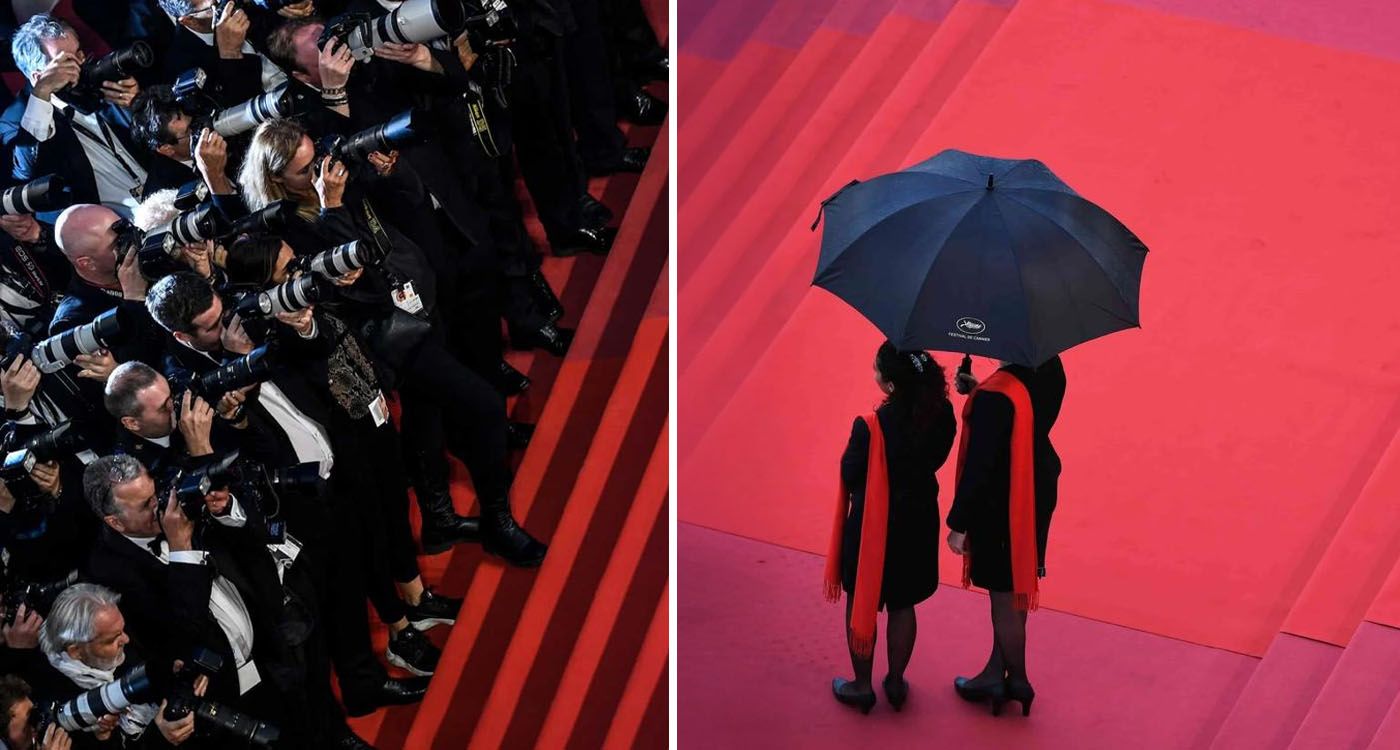
Behind the glamour and the flashing cameras, they are the ones who make everything run smoothly. They set up, drive, clean and welcome. Invisible yet indispensable, these unseen hands are the backbone of Cannes. In the shadow of the world’s largest film festival, another group of workers is hard at work.
In Cannes, everything seems to float. Spectacular gowns, knowing glances and intense spotlight beams. Yet, beneath this radiant veneer, hundreds of anonymous figures move quietly behind the scenes. They don’t climb the steps or feature in Instagram stories. But without them, the red carpet would simply be a piece of red fabric.
Every morning, as early as five o’clock, the first trucks arrive. They deliver coolers, flowers, miles of cables, temporary stage props and security equipment. Technicians, delivery drivers and cleaning staff work tirelessly in the background to ensure that the stars shine under the limelight.
Ahmed is one of them. For 10 years, every May, he’s been setting up metal barriers. He knows the precise location of every rail between Rue d’Antibes and the Palais. He knows how to adjust the angle of a spotlight, smooth out a carpet and fix a malfunctioning alarm. Yet, every year, he enters through the back entrance, his badge discreetly pinned to his vest, far from the cameras.
Once that’s done, security teams take over. They inspect every nook and cranny, check ventilation shafts, under the stage and air conditioning ducts. Every corner must be examined thoroughly. In the dim corridors of the Palais, a dance of plainclothes officers unfolds. Some come from the police, others from private security agencies. They’re not there to watch the films or mingle with the stars. Their job is to make sure the fantasy remains intact.
While the theaters fill up, while celebrities walk the red carpet, another network is in action: the hotel staff. During the festival, Cannes operates with one hotel employee for every two guests. This statistic might seem staggering, but it becomes understandable when you realize the level of service required. From early-morning breakfasts to carrying luggage into rooms, every task is meticulously timed. The staff get little sleep, speak several languages and always smile—even after midnight.

Employees unroll the red carpet on the steps of the Palais des Festivals, on the eve of the opening ceremony of the 78th edition of the Cannes Film Festival, in Cannes, southeastern France, on May 13, 2025. ©Bertrand GUAY / AFP
Guardians of Silence
But the work behind the scenes goes beyond mere logistics. It’s also the drivers, the ones waiting with engines running, phone in hand. Mistakes are not an option, a wrong address or a slight delay could throw the entire operation off course. Some carry the stars, others transport jury members or press agents. They ask no questions, but sometimes, they hear confessions—stories they will never share.
Jean, 62, has been driving for the festival since 2002. He’s had Sharon Stone, Timothée Chalamet, Agnès Varda in his car. He doesn't tell tales, not many at least, but he remembers everything. The phone calls before the red carpet, the discreet tears after a screening. “Cannes,” he says, “is not just about glitter. It’s about tired bodies and people who doubt.”
In the kitchens of the grand hotels, the festival becomes a high-pressure peak season. The chefs oversee perfection, but it’s the commis, the dishwashers and the couriers who set the pace. They deliver, clean, prepare and repeat. Error is not an option. Every plate must be a work of art. Again, invisibility and perfection are the highest demand.
Then, there are the hostesses. Positioned at the entrance of screenings, they check invitations and welcome guests with poise. They know the VIPs’ names, the whims of agents, the faces of photographers and the eccentricities of the regulars. In heels for 12 hours a day, they smile at everyone—even the hurried passersby without badges. It’s a grueling job, often underestimated, but one that demands a perfect balance of protocol and emotions.
Behind the scenes of press conferences, other hands are in motion. Sound engineers, lighting assistants, simultaneous translators, security staff and press hostesses—they must all blend into the background. Efficient, swift and invisible, they must never be seen. Like the unsung technicians in a film, they are the backbone of every event.
These seasonal workers, often precarious, sometimes hired on daily contracts, are the silent fabric of the festival. Without them, no screening would start on time, no set would remain standing, no meal would be served. Yet, their names never make the credits. They are as invisible as they are replaceable.
This year, some have chosen to speak out, sharing their stories through anonymous social media accounts. They talk of the relentless pace, of cramped studio living in Juan-les-Pins with five people to a room. They're not seeking to protest or expose, but simply to be recognized.
Cannes fascinates with its luxury, but it runs on military-grade logistics. A true army of silent professionals is mobilized. Behind every long shot of stars walking up the steps, there are 10 invisible actions that made it all possible.
The invisibles of Cannes don’t seek spotlight. They don’t demand the stage. But they deserve to be seen, in their own quiet way, in the credits. Without them, the festival would be nothing but an empty screen.
What if, this year, we also applauded those we never see?





Comments